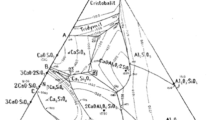
Overview
- Offers proofs of existing variational principles for non-equilibrium thermodynamics
- Highlights the role of macroscopic quantities
- Provides a valuable addition to the theme for students and practitioners
Part of the book series: Lecture Notes in Physics (LNP, volume 1007)
Access this book
Tax calculation will be finalised at checkout
Other ways to access
About this book
The importance of thermodynamics, particularly its Second Principle, to all branches of science in which systems with very large numbers of particles are involved cannot be overstated. This book offers a panoramic view of non-equilibrium thermodynamics. Perhaps the two most attractive aspects of thermodynamic equilibrium are its stability and its independence from the specifics of the particular system involved. Does an equivalent exist for non-equilibrium thermodynamics? Many researchers have tried to describe such stability in the same way that the Second Principle describes the stability of thermodynamic equilibrium - and failed. Most of them invoked either entropy, or its production rate, or some modified version of it. In their efforts, however, those researchers have found a lot of useful stability criteria for far-from-equilibrium states. These criteria usually take the form of variational principles, in terms of the minimization or maximization of some quantity. The aimof this book is to discuss these variational principles by highlighting the role of macroscopic quantities. This book is aimed at a wider audience than those most often exposed to the criteria described, i.e., undergraduates in STEM, as well as the usual interested and invested professionals.
Similar content being viewed by others
Keywords
Table of contents (7 chapters)
Authors and Affiliations
About the author
Andrea Di Vita was trained as a plasma physicist, and has been engaged in nuclear fusion research. His work mainly concerns the stability of gas turbine burners against spontaneous, dangerous thermo-acoustic instabilities (AKA 'humming'), which transform combustion energy into mechanical energy and may destroy low-pollution, high-power burners. His primary fields of interest are non-equilibrium thermodynamics and non-linear analysis. He is a Visiting Scientist at the Università degli Studi di Genova, Dipartimento di Ingegneria civile, chimica e ambientale (DICCA).
Bibliographic Information
Book Title: Non-equilibrium Thermodynamics
Authors: Andrea Di Vita
Series Title: Lecture Notes in Physics
DOI: https://doi.org/10.1007/978-3-031-12221-7
Publisher: Springer Cham
eBook Packages: Physics and Astronomy, Physics and Astronomy (R0)
Copyright Information: The Editor(s) (if applicable) and The Author(s), under exclusive license to Springer Nature Switzerland AG 2022
Softcover ISBN: 978-3-031-12220-0Published: 14 September 2022
eBook ISBN: 978-3-031-12221-7Published: 13 September 2022
Series ISSN: 0075-8450
Series E-ISSN: 1616-6361
Edition Number: 1
Number of Pages: XXI, 221
Number of Illustrations: 20 b/w illustrations, 2 illustrations in colour
Topics: Classical and Continuum Physics, Thermodynamics, Complex Systems, Theoretical, Mathematical and Computational Physics



